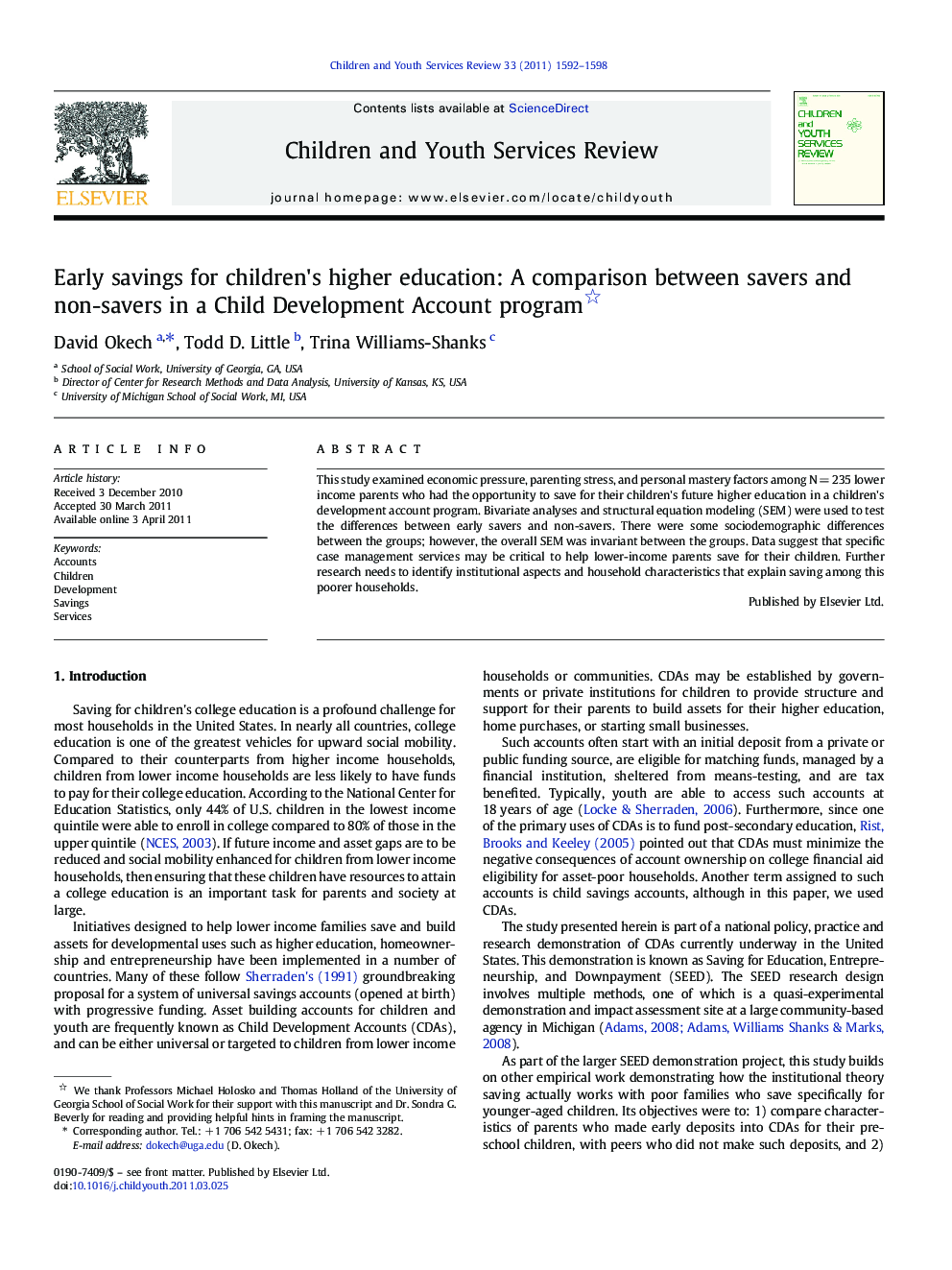| Article ID | Journal | Published Year | Pages | File Type |
|---|---|---|---|---|
| 346144 | Children and Youth Services Review | 2011 | 7 Pages |
This study examined economic pressure, parenting stress, and personal mastery factors among N = 235 lower income parents who had the opportunity to save for their children's future higher education in a children's development account program. Bivariate analyses and structural equation modeling (SEM) were used to test the differences between early savers and non-savers. There were some sociodemographic differences between the groups; however, the overall SEM was invariant between the groups. Data suggest that specific case management services may be critical to help lower-income parents save for their children. Further research needs to identify institutional aspects and household characteristics that explain saving among this poorer households.
Research highlights► We measure three well-being constructs among parents with early savings and those without in a savings accounts program for children’s education. ► There exists socio-demographic differences among the groups. ► The overall structural equation model was invariant among the groups. ► Case management services may help some parents save in such programs. ► Specific aspects of the institutional theory on saving should be identified that can help parents save.
